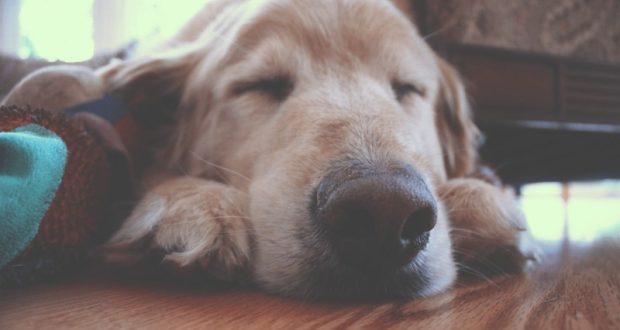By: Guest Author
Published: October 13, 2016
Contributed by Brooke Faulkner- Guest Contributor
Animal lovers, myself included, have spent the last several years blowing up the internet with the good news. Scientific research has finally caught up with what we’ve known all along: our pets are good for our physical and emotional health.
Did the non-pet-owners of the world really think we walk around with plastic baggies in our pockets just because we love picking up after our dogs? We make sacrifices because our animals are worth it. Of course they are good for our health.
All of these things still ring true when a woman is entering menopause.
So much changes during this period – hormonal levels fluctuate like a roller coaster, even fast-sleepers suddenly struggle with insomnia, libido decreases, and skin and hair becomes more brittle – it’s a challenging transition to say the least. But one thing stays the same. Our pets make it all a little bit more manageable.
The Emotional Self
Stress and anxiety are two major factors that affect the severity of a woman’s experience with menopause. We’re all familiar with the dreaded hot flash. Well, this unpleasant symptom of menopause is inextricably linked to a woman’s anxiety level.
“Compared with women in the normal anxiety range,” reports The Journal of the North American Menopause Society, “women with moderate anxiety were nearly three times more likely to report hot flashes and women with high anxiety were nearly five times more likely to report hot flashes.”
You know who’s proven to lower stress and anxiety?
Yup. Woof.
Not only do pets lower stress, it’s also possible that pet owners can draw more support from their cat or dog than from, get this, a spouse or close friend. How is that possible? How can that level of emotional kinship cross species? When it comes down to it, it’s relatively simple: animals don’t judge us. We don’t have to worry about how our words affect them or how they might react. We can just be ourselves – our moody, hot, hormonally imbalanced selves – because their love really is unconditional.
The Physical Self
Getting out of our heads for a moment, another pro tip for easing the struggle of menopause is to get regular exercise. The more overweight a woman is going into menopause, the more unpleasant her experience will be. The best way to ease into healthier living is to make exercise a regular part of your routine, And it doesn’t have to be at the gym. Regular exercise is the sort of thing you hardly notice because it’s such a normal part of life – riding a bicycle to a friend’s house, doing morning yoga, or walking the dog around the neighborhood. It’s simple, and if I might say so it’s quite a bit more rewarding than running in place in front of a TV screen.
Another unfortunate side effect of menopause is that it has this annoying tendency to complicate existing conditions. It is common for menopausal women with diabetes to experience unstable insulin levels because of the hormonal changes in their bodies. Higher levels of estrogen usually improve sensitivity, while higher levels of progesterone cause resistance. Obviously, this complicates diabetes management and makes it even more important to closely monitor insulin levels. Thanks hormones.
But of course there’s a canine answer to that dilemma. Have you heard of diabetes assist dogs? They are dogs trained to monitor smells in the air for a specific scent on the human breath that is tied to dropping or low blood sugar levels. The animal is trained to “alert” the diabetic owner that their blood sugar is dangerously low, usually by pawing or nudging them in a significant way.
Is it starting to feel like pets are the solution to all the world’s menopausal problems? Well, I wouldn’t go that far. We’re interested in the realities here, not just the cute ‘n’ fluffies.
One groan-inducing reality of menopause is that many women find themselves developing new allergies. And yes, often they develop allergies to their darling cats and dogs. It’s annoying to be sure, but there are tactics one can employ to lessen the impact of a newly developed allergy. Here’s the simplified version:
● Keep the windows open
● Choose a low-shedding pet
● Wash pets regularly
● Designate a pet-free room
● Change pet bedding often
Going through the extra effort to keep a pet in your life will pay off later. There is of course the immediate companionship that a pet provides, and all of the benefits we’ve discussed thus far, but there’s also the possibility that a pet can be a real ally later in life.
Just because a woman is going through menopause hardly means she’s making preparations for elder hood, but the reality of a changing body does bring up some interesting thoughts. Cats and dogs are renowned for their companionship with seniors. Wouldn’t it be great if you could grow old together?
Do you have pets accompanying you on your journey through menopause? Share your story in the comments!
Author Bio
Brooke Faulkner is a mother of two and animal lover from Portland, Oregon. She is presently consumed with finding just the perfect homemade dog biscuit recipe.
The views expressed herein this article, written by a guest contributor, do not necessarily represent those of the Red Hot Mamas organization. The content is for informational purposes and should not substitute the advice of your doctor.
 Red Hot Mamas In Charge of Change.
Red Hot Mamas In Charge of Change.




